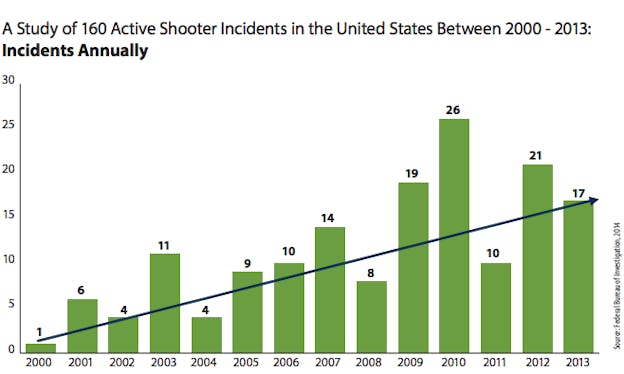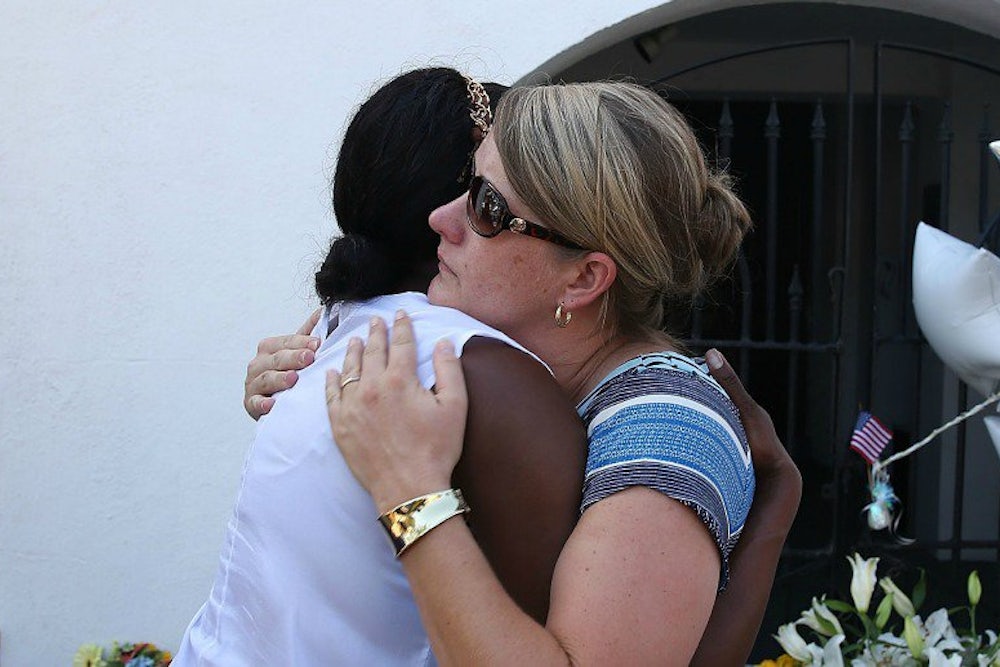President Barack Obama noted he has “had to make statements like this too many times” when he delivered remarks on Thursday about the nine people who were killed in a mass shooting at a Charleston, South Carolina black historical church. He specified the role the nation’s gun laws play in this and other incidents, as he’s had to do many times before:
We don't have all the facts, but we do know that once again, innocent people were killed in part because someone who wanted to inflict harm had no trouble getting their hands on a gun. At some point, we as a country will have to reckon with the fact that this type of mass violence does not happen in other advanced countries. It doesn't happen in other places with this kind of frequency. And it is in our power to do something about it. I say that recognizing the politics in this town foreclose a lot of those avenues right now. But it'd be wrong for us not to acknowledge it, and at some point, it's going to be important for the American to come to grips with it and for us to be able to shift how we think about the issue of gun violence collectively.
Obama’s main point was that the level of gun violence in this country is uniquely American. On that count, he is correct. A study from the UCLA School of Public Health shows that, according to data in 2003, the U.S. had 20 times the number of homicides involving guns than any of 22 other rich nations. In updated data compiled by PolitiFact, the rate is still 15 times higher per 2009 data.
Mass shootings tend to attract the most attention, including from the president. Since 2007, the U.S. has experienced six of its 12 deadliest mass shootings, and Obama has delivered remarks on at least seven major shootings while in office, per a count from Vox. An FBI study of “active shootings” (incidents where individuals target populated areas) between 2000 and 2013 found they are on the rise, from 6.4 incidents annually in the first half of the decade to 16.4 incidents in the last seven years.

Nonetheless, Obama's implication that mass shootings are at the heart of the nation’s gun violence misses the bigger problem. The same FBI study finds these shootings resulted in 486 people dead and 557 wounded since 2000. The people who die from everyday violence are the ones we hear less about, but according to the Centers for Disease Control and Prevention, more than 11,000 people died from gun-related homicides in 2013. It says accidental gun injuries accounted for 505 deaths.
Framing gun control around mass shootings generally feeds into pro-gun activists’ argument, which is that no law can keep a gun out of the hands of someone who’s determined to kill. “What kind of person goes in a church and shoots nine people? There’s a sickness in our country,” Kentucky senator and presidential candidate Rand Paul said Thursday. “There’s something terribly wrong, but it isn’t going to be fixed by your government.” Paul inadvertently showed why the best case for gun control isn’t mass shootings, but everyday violence. While there’s little research on gun laws preventing mass shootings, there’s a wealth of it that shows how they reduce gun violence, overall.
The Washington Post reported in January on an interesting example: In 1994, Connecticut passed a gun control bill regulating the private seller market for handguns. Unlike most of the country, which has no oversight for private sellers and buyers, Connecticut required sales to be reported and buyers to have a permit. Though the arguments against it in 1994 sounded like today’s excuses (“This will not take one gun out of the hands of a single criminal,” a state representative said) a 2015 study in the American Journal of Public Health found the law reduced gun homicides by 40 percent.
Contrary to what conservatives argue, gun control laws do help—just not exactly in the way Obama implies they do.
